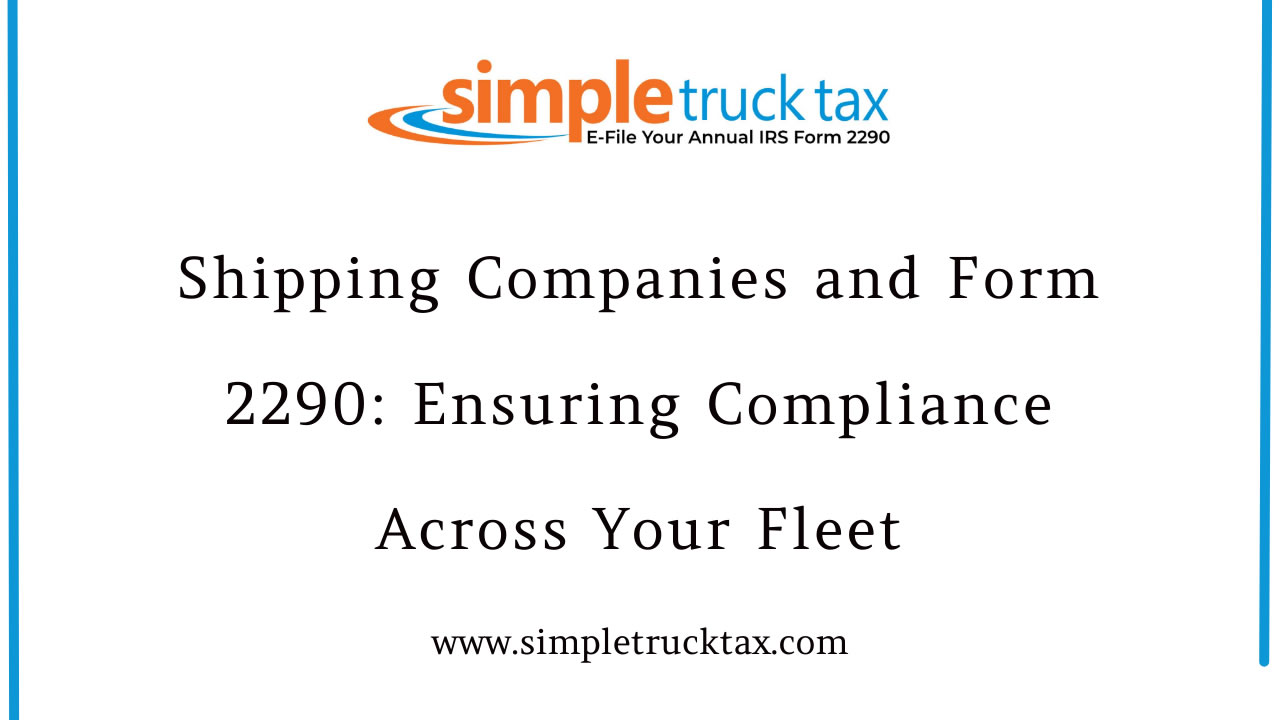
Shipping Companies and Form 2290: Ensuring Compliance Across Your Fleet
A shipping company or fleet owner must ensure that their entire fleet of heavy vehicles is compliant with all federal tax obligations. This is a major concern since a shipping company can get into serious trouble if any requirements are missed.
One such requirement is Form 2290 - the Heavy Highway Vehicle Use Tax Return, which is applicable to vehicles that are fifty five thousand pounds or more. All vehicles in a fleet which operates interstate require timely and proper filing of permits for inter-state travel.
Reason for Compliance Shipping Companies 2290
Shipping companies should be aware that fulfillment of business goals is subject to vehicle compliance. Form 2290 is not an ordinary tax form; it is an oversight from the IRS which ensures that heavy vehicles constituting chronic damage to roads are taxed.
A system that regulates the use of public infrastructure significantly pinches shipping companies who own dozens or even hundreds of vehicles. Therefore, for these companies and fleet management companies, this form becomes a necessity to stay compliant.
Changes in tax policies or additional requirements may bring heavy tax penalties, interest, and in some cases suspended vehicle registration. Thus, it is vital that the compliance and logistics teams of a company understand the details around Form 2290's filing and payment timelines.
E-Filing Form 2290 for Several Vehicles
Managing multiple vehicles under one EIN is one of the hurdles that shipping firms have to deal with. Filing Form 2290 in bulk cuts down on processing time significantly, which is a great thing. A company can e-file the returns for its entire fleet using an approved e-file provider.
This facilitates payment calendar tracking and receipt of Schedule 1 which is essential for vehicle registration. Batching maintaining company records legally helps increase efficacy, cut down costs, and ensure faster administrative processing.
Further unlock fleet compliance
Setting firm deadlines to assist with regulatory filing for form 2290 and other tasks will help gain competitive advantage for these shipping companies. Having a seasoned tax advisor or integrating e-filing software will greatly assist with avoidance of expensive oversight.
Regular internal audits along with employee education for IRS guidelines paired with the onboarding of vehicles into the tax filing system will assist these companies strengthen their compliance controls.
Steer Clear of Fines and Maintain the Mobility of Your Fleet
Failing to file a Form 2290 and its corresponding payment on schedule can result in fines equating to 4.5 percent of the total due tax, as well as accruing additional interest. In the case of transportation businesses, such non-compliance may result in oversight expenditures and administrative headaches worth, quite literally, thousands of dollars.
By resolving digital compliance roadblocks, we ensure that our solutions enable us to keep the fleet on the move.